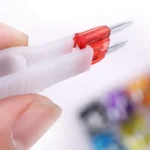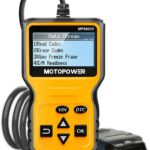All trailer hitches are uniquely made to fit the vehicle they’re connected to in order to haul vehicles and loads of varied sizes. Although it might seem simpler if all trailer hitch balls were the same size: you may notice that they can range in size from two inches to three and even larger.
Why is that? Wouldn’t it make more sense if there was a uniform set size?
This is everything you should know about trailer hitch balls and why they matter so much when picking a vehicle.

To Tell What You Can Tow
The main reason that trailer hitch balls are different sizes is that they’ll stop people from attempting to haul things their vehicles can’t handle. If you have a small car, you shouldn’t be trying to haul an RV behind it. The size of these balls shows the size of the tow you can take on behind it and is often weight rated so that you can make the best choices possible.
Towing Class 3 Trailers
The smallest trailer ball hitch is the 2-inch, and it’s the industry standard. This hitch can handle up to 12,000 pounds. Although there’s no truly universal ball, this covers almost anything a smaller vehicle or truck would need to tow, including U-Haul trailers, flat trailers, and other smaller items.
If a car this size tried to haul something made for a larger vehicle, it could overwork the engine and possibly cause permanent body damage, as well as possibly just breaking off in the middle of driving, breaking, or turning: which is especially dangerous on highways and interstates.
Towing With Commercial Semi-Trucks
Although many trucks go for a pintle hitch, a trailer ball hitch that’s three inches can handle gooseneck towing, which is usually found on commercial semi-trucks. This type of ball ensures that your vehicle is large and heavy-duty enough to handle anything thrown at it.
Simply attaching a trailer ball this size to a smaller vehicle is a poor decision for all of the reasons listed above. The trailer ball itself doesn’t handle the brunt of the towing: your vehicle does, so it’s vital to research your vehicle before anything else.
Brand Needs and Regulations
Some brands of trailer hitch balls can only handle specific weights or vehicle types, so it’s vital to pay attention to what you’re connecting to your vehicle. Research the brand, look at its weight and capability limits and ensure that it’s installed properly. Improper installation can lead to tons of issues down the road that nobody wants to have to deal with and can possibly risk peoples’ lives.
Tow Intelligently or You Can Risk Major Damage
Take every precaution you can to tow as safely as possible. If you’re cutting it close with a weight limit and aren’t sure: take it down a size. There’s no reason to risk damaging your vehicle and others on the road just because you wanted to try to tow a couple extra thousand pounds above what your vehicle can handle.








